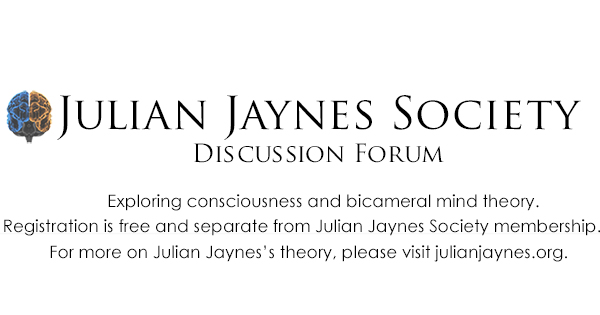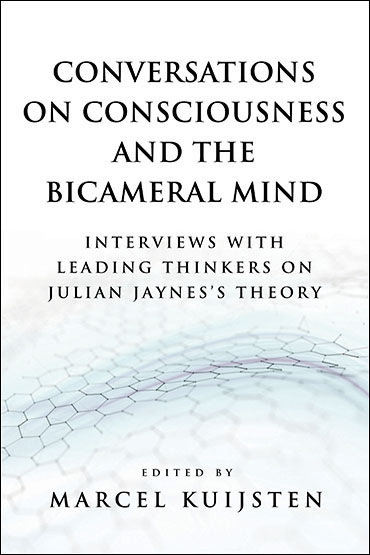By the early 300s CE perhaps only 5% of the Roman Empire’s population was Christian. But Constantine’s “conversion” in 312 CE initiated a gradual spiritual transformation of the Empire. In 380 CE the Edict of Thessalonica proclaimed Nicene Christianity as the official religion of the Empire, granting what had been a small cult the resources, influence, and authority of officialdom. By the last century of the Western Roman Empire Christianity had become the dominant form of spirituality. Supposedly Christianity owed its success, like certain other mystery cults, in how it appealed to those who were not allowed to participate in the public state cults and patriarchal domestic practices. Those searching for spiritual sustenance, especially women, slaves, and ex-slaves, looked to exotic and foreign faiths. I suspect, however, that there is more to the story. Christianity, I submit, like other mystery cults, grew in popularity due to shifts in mentality. Seen from the perspective of the grand sweep of history, admittedly, these changes are not easily discernible. Nevertheless, something of significance was afoot in the several centuries before and after year zero.
Faith as Consciously-interiorized Belief. My argument will not make sense unless some historical perspective is introduced. In the preconscious period disbelief or skepticism about the gods was culturally impossible. No one questioned the reality of the supernatural order, whose very existence was irrefutable. Indeed, the existence of distinct spiritual traditions was regarded neither as a cause of conflict nor a theological problem. Instead, polytheistic universalism assumed that all gods, no matter their provenance, deserved acknowledgment and worship (this accommodation of foreign gods is also called or pantheologism). Preconscious individuals lacked what I call “faith”; I am using this term in a technical sense to mean the conscious interiorization of belief. Faith always leaves a door open, even if slight, to challenges to one’s convictions, even among the most committed. But in preconscious times faith did not exist. Instead, beliefs were “doxa,” i.e., they were deeply implicit, taken-for-granted, and incontrovertibly self-evident.
Faith, unlike doxa, is wrapped up in volition and therefore contains a kernel of unsettled uncertainty. So, it must be authorized by codified principles, fixed doctrines, and established canon. Vows, oaths, and pledges also prop faith up, helping to stabilize any shakiness caused by debatable tenets and personal doubts. Such declarations of orthodoxy are especially salient when a community is threatened and demonstrations of loyalty are used to prove one’s support.
The loss of voices and visions by the first millennium BCE led to existentialist qualms about one’s own belief and that of others; the unwavering credence and rock-solid certainty of bicameral times was shattered. Due to growing trade and inter-cultural contact, peoples began to compare their belief systems with others on a more regular basis. But polytheistic universalism could no longer accommodate what was becoming drastic differences. It is inappropriate, then, to talk of faith in bicameral times. People have always had beliefs, of course, but faith carries an explicit, volitional, and intentional sense.
Roman Religion. Ancient Roman spirituality was diverse, cosmopolitan and, within limits, tolerant. Vestiges of an earlier mentality (i.e., a double psychology of divine power plus mortal follower) infused all aspects of life in a way that moderns might find surprising if they view the Romans as practical, no-nonsense, and sensible. Religio, the observance of moral rules in daily life, meant fulfilling obligations towards the gods and was bound up with res publica (“matters of public interest”). At the apex of the theopolitical system were cults associated with the state and the emperor, while the private household was the abode of a colorful collection of deified ancestors, ghosts, and assorted domestic spirts and deities. Officialdom was concerned with orthopraxy (correct behavior); religio was more about knowledge that informed procedural practices (how to worship and make sacrifices) rather than an explicitly-verbalized faith. In other words, proper practice and conduct were given more attention than orthodoxy (correct belief), which in any case was quite diverse and difficult to police. By the first century BCE religio would develop into an autonomous intellectual domain of inquiry. Magic and superstitio, the latter understood as excessive religious behavior or a misapplication of spiritual practices, were illicit practices regulated and at times suppressed by the state.
Admittedly my argument is somewhat speculative and the evidence is patchy. In any case, though the Romans obviously possessed Jaynesian consciousness, we must keep in mind that this mentality is a constellation of features that, depending on historical, cultural, and individual differences, varies in intensity (this is true today, i.e., each feature is characterized by a matter of degree). The highlighting of particular facets of conscious interiority is apparent in the spread of Christianity and mystery religions, e.g., the cults of Orpheus, Mithra, Dionysus, Serapis, Isis, and Jupiter Dolichenus, as well as the Eleusinian and Samothracian mysteries. The specific features in question include self-individuation, self-autonomy, and self-authorization. These aspects of subjective introspectable self-awareness became more salient in the late republican and imperial periods as civilization became even more complex (presumably because of tectonic sociopolitical shifts, a topic I will leave aside for now). In the Greco-Roman world during the last centuries of the western Empire, then, a significant shift occurred.
Scholars have not been successful in attempts to see how the mystery cults directly influenced Christianity. However, both the mystery cults and Christianity developed in the same ideological environment that cultivated the aforementioned features of conscious interiority. Increasingly interiorizing the “right” beliefs seems to have been the focus of spirituality; thus the debate about which should be given priority, good deeds or inner faith. This certainly became the overriding issue for the state-backed version of Christianity that suppressed about thirty “heresies” during its first 600 years (though unorthodox theological tributaries would flow down through the centuries, bubbling up with great force during the medieval—e.g., Cathars—and the early modern ages).
Related to the emphasis on orthodoxy is proselytizing, i.e., radically changing someone’s belief system. The emergence of proselytizing faiths (Zoroastrianism, Manichaeism, Buddhism, Christianity, Islam), is premised on the interesting psychology of “conversion.” This was another consequence of conscious interiorization. In addition to issues of sociopolitical control, modifying an individual’s set of ideas heavy with personal significance highlights how self-individuation, a feature of interiority, had become central to spirituality. Converting others is based on the notion that the introcosm of another is lacking something, i.e., the subjective contents of a specific set of convictions. And conversion is typically not just about adopting a certain creed; it also demands the conscious abandonment of what were once one’s guiding principles.
The Birth of Christianity from a Jaynesian Perspective: Faith as Consciously-interiorized Belief
Posts by anthropologist, mental health counselor, and author Brian J. McVeigh on Julian Jaynes's theory and related topics.
Return to “Brian J. McVeigh's Random Thoughts”
Jump to
- JJS Forum
- ↳ General Discussion
- ↳ News Items Related to Jaynes's Theory
- ↳ Book Discussion: The Origin of Consciousness and Julian Jaynes Society Publications
- ↳ Myths, Misconceptions, and Fact Checks About Julian Jaynes's Theory
- ↳ Brian J. McVeigh's Random Thoughts
- ↳ Julian Jaynes
- ↳ Conferences, Events, and Local Discussion Groups
- ↳ Lecture Discussion
- ↳ Interview and Q&A Discussion
- ↳ 1.0. Hypothesis One: Consciousness Based On Language
- ↳ 1.01. Hypothesis One: Consciousness Based On Language | Subtopic: Consciousness & Dreams
- ↳ 1.02. Hypothesis One: Consciousness Based On Language | Subtopic: Consciousness in Children
- ↳ 1.03. Hypothesis One: Consciousness Based On Language | Subtopic: Consciousness and AI
- ↳ 2.0. Hypothesis Two: The Bicameral Mind
- ↳ 2.1. Hypothesis Two: The Bicameral Mind | Subtopic: Auditory Hallucinations in Normal Adults
- ↳ 2.2. Hypothesis Two: The Bicameral Mind | Subtopic: Hallucinations & Imaginary Companions in Children
- ↳ 2.3. Hypothesis Two: The Bicameral Mind | Subtopic: Hypnosis, Possession & Altered States of Consciousness
- ↳ 2.4. Hypothesis Two: The Bicameral Mind | Subtopic: Religion & the Bicameral Mind
- ↳ 2.5. Hypothesis Two: The Bicameral Mind | Subtopic: Schizophrenia
- ↳ 2.6. Hypothesis Two: The Bicameral Mind | Subtopic: The Mentality of Pre-Literate & Pre-Modern Peoples
- ↳ 3.0. Hypothesis Three: Dating the Development of Consciousness
- ↳ 4.0. Hypothesis Four: Jaynes's Neurological Model for the Bicameral Mind
- ↳ The Bicameral Mind in Fiction, Film & Popular Culture
- ↳ Information for Students


